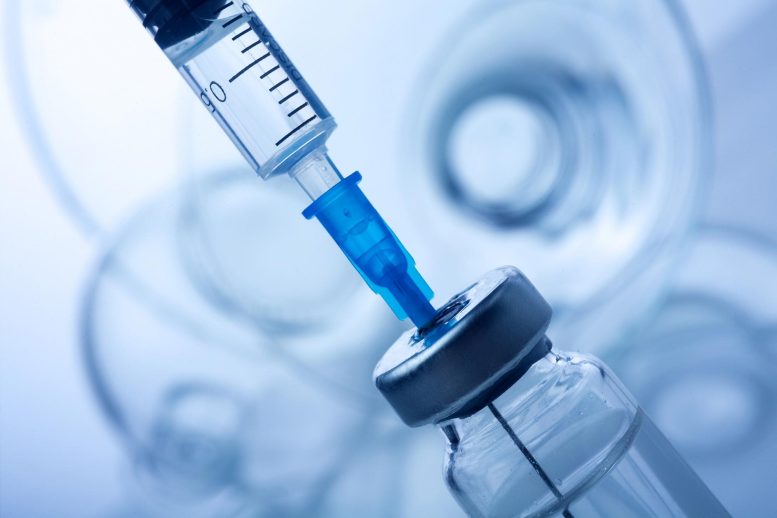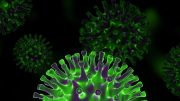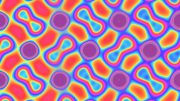
A UCSF-led study found that side effects such as headache, chills, and tiredness from COVID-19 vaccines may indicate a strong immune response, reducing infection risk. Despite the benefits, less than 25% of Americans received last year’s updated vaccine, though it could potentially prevent severe complications and long COVID.
A UCSF study suggests that side effects like headaches and chills from COVID-19 vaccines indicate a robust immune response; however, uptake of the vaccine remains low in the U.S. despite ongoing fatalities.
According to a UCSF-led study, symptoms such as headaches, chills, and fatigue could indicate an enhanced immune response. Despite the fact that fewer than 25% of Americans have received the latest COVID-19 vaccine, over 23,000 deaths have been recorded in the United States this year.
One of the most common reasons for bypassing the COVID vaccine is concern about side effects like tiredness, muscle and joint pain, chills, headache, fever, nausea, and feeling generally unwell. But a new study, led by UC San Francisco, has found that the symptoms indicate a robust immune response that is likely to lessen the chances of infection.
The study, which was recently published in the journal Annals of Internal Medicine, is based on symptom reports and antibody responses from 363 people, who had the Pfizer-BioNTech or Moderna mRNA vaccines when they were first introduced.
After the second dose of the vaccine, the researchers found that those with seven or more symptoms had nearly double the antibody levels of those who did not have symptoms. The participants were mainly in their forties to sixties and had not had the virus.
About 40% of the people in the study also wore a device to monitor their temperature, breathing, and heart rate. The researchers found that those whose skin temperature increased by 1 degree Celsius after the second dose had three times the antibody levels six months later, compared to those whose temperature did not increase.
An absence of side effects does not mean the vaccine is not working
“Generally, we found that the higher the number of side effects, the higher the level of antibodies,” said first author Ethan Dutcher, MD, PhD, a postdoctoral researcher in the UCSF Department of Psychiatry and Behavioral Sciences, and the Weill Institute for Neurosciences. “But this wasn’t a hard rule: some people without side effects had better antibodies than some people with side effects.”
As the virus has evolved and fatality rates have fallen, many people are underestimating its impact. “The toll of COVID is still high for some – sickness, lost work, lasting fatigue and the dreaded long COVID,” said co-senior author Elissa Epel, PhD, a vice chair in the UCSF Department of Psychiatry and Behavioral Sciences. “While the symptoms from vaccination can be very unpleasant, it’s important to remember that they don’t come close to the disease’s potential complications,” she said.
“With COVID-19 vaccines likely here to stay, identifying what predicts a strong antibody response will remain important,” said co-senior author Aric Prather, PhD, professor in the UCSF Department of Psychiatry and Behavioral Sciences.
The latest recommendations from the Centers for Disease Control and Prevention are that everyone 6 months and older should receive the updated vaccine, and those 65 and older should receive an additional dose.
Reference: “COVID-19 Vaccine Side Effects and Long-Term Neutralizing Antibody Response: A Prospective Cohort Study” by Ethan G. Dutcher, Elissa S. Epel, Ashley E. Mason, Frederick M. Hecht, James E. Robinson, Stacy S. Drury and Aric A. Prather, 11 June 2024, Annals of Internal Medicine.
DOI: 10.7326/M23-2956
The study was funded by the National Institutes of Health.
Epel is on the scientific advisory boards of Meru Health and Oura Health. Mason has received consultancy fees from Oura Health. Prather is an advisor to NeuroGeneces and L-New Co.









So your vaccine side effects are great news. And if you die of a blood clot, well bless your luck, you’re immune forever!
Mild side-effects are an indication of an immune response for any vaccine, and yet another study finding this doesn’t need to be written as an advertisement to increase vaccine uptake. “over 23,000 deaths have been recorded in the United States this year” is extremely misleading, as they may test positive for COVID while dying from any other disease. “…latest recommendations from the (CDC) are that everyone 6 months and older should receive the updated vaccine” is insane — six months old? Exactly how many only-months-old people ever died of COVID?
Beat me to it, lol! My thoughts exactly!
Let me add that the USFC and Pfizer have been partners since 2010, so they cannot produce independent or reliable studies on the subject.